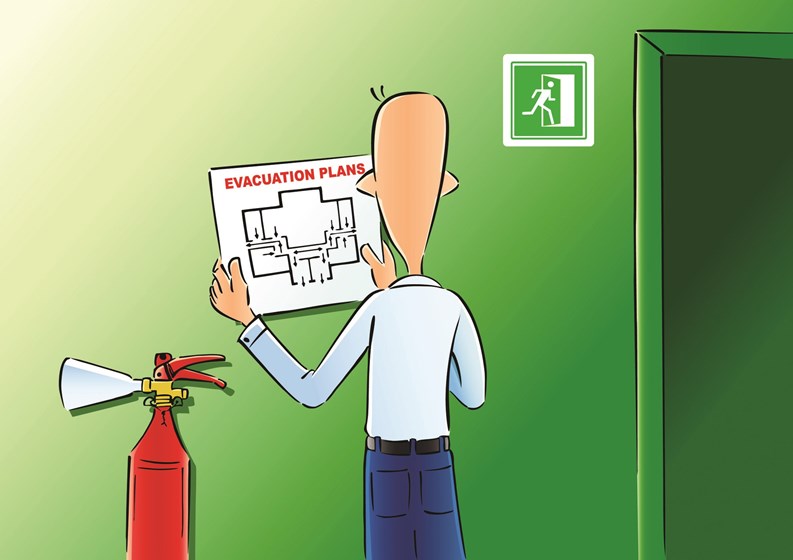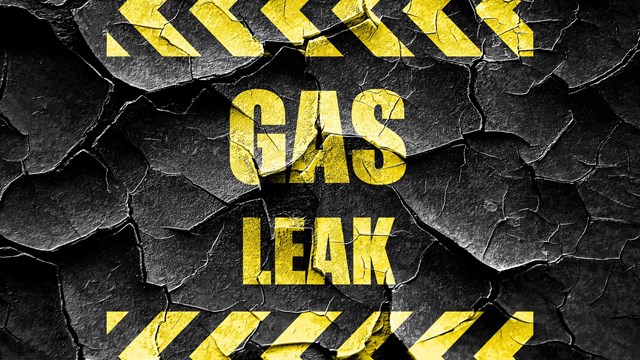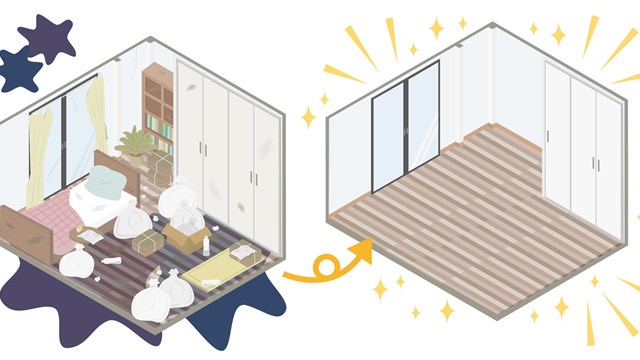Some days it rains, some days it pours — and some days, there’s a Category 4 hurricane. And while the latter is relatively rare, it can be a true disaster, and any condominium, co-op or homeowners association worth its salt should be prepared for it. Whether storm, fire, earthquake or freak accident, a board must take into account anything that may confront its community and put property and personal safety in danger, and come up with a plan to best lead its constituents to safety. And while this seems like quite the undertaking, there are guidelines in place and experts on hand who can help steer an association through disaster preparedness.
The Roof Is on Fire
While extreme weather events get a lot of media play, nationwide data points to fires as being the most common cause for evacuation of residential properties. An association needs a firm policy in place for what to do in this type of stressful situation.
“The Red Cross responds to more than 60,000 home fires per year,” says Kevin F. Kelley, senior director of community preparedness programs for the American Red Cross. “Although they’re a little under the radar, they can happen in every community, and nationally they add up, so this is always a smart thing on which to work with residents. We have a campaign currently underway called 2 Steps 2 Minutes, and those two steps are basically to check your smoke alarms monthly and to practice home escape fire drills, where you try and get everyone out of the home in two minutes, as research indicates that it’s at that point where a person will be overcome by smoke and potentially killed.”
In condos and HOAs, there may be municipal codes or language in a community’s governing documents that speak to fire safety requirements, and a board should consult those accordingly and make sure that they are, at minimum, adhering to the law of the land. But as Kelley observes, “The general rules are to check the smoke alarms, make sure they’re working, and to practice a home fire escape drill that includes a meeting place that is well away from any potential fire. The reason being that when everyone gathers at the same place, no one — including firefighters — risks their lives trying to go into homes to rescue people who still may be inside. If the first responders know that they don’t need to undergo a search and rescue, they can just handle the suppression of the fire itself.”
The responsibility of an association is to anticipate foreseeable events, says Robert C. Griffin, Esq., a partner with Griffin Alexander P.C. in Randolph, New Jersey. “Some disasters, like fires, are foreseeable. If you live at the shore and there’s a hurricane in the forecast, you can foresee a flood. So when you fail to have a plan at all, you are running the risk that, by failing to anticipate and take action to protect persons and property — with respect at least to the common elements — you could be considered negligent. Of course, not every emergency can be anticipated. We don’t get many tornadoes around here. But if failing to have any evacuation plan introduces a risk of chaos that could cause injury should people need to escape a fire, that could be considered a negligent act in certain circumstances.”
Residential Distress
The most important aspect of emergency management is communication. More likely than not, all residents will want to pitch in to evacuate and secure the community, but there needs to be a clear, easy-to-follow structure in place by which they do so, lest things dissolve into chaos.
“We help put together plans for buildings based on prior experiences, and revise them as necessary,” says Ira Meister, president of Matthew Adam Properties, Inc. in New York City. “We will set up a private master database of email accounts and cell phone numbers, such that we can text out emergency info should one occur. I have an EMT on staff, so they’re extremely helpful in the planning process. We’re doing a lot with retrofitting emergency lighting in buildings, as LED is quite cheap now, as is battery power. We have the ability to extend what had been 90 minutes of backup power, say, in staircases, to several hours.”
“I also have one large building that installed a generator, just to ensure that it has a working elevator, water and emergency lighting during an outage,” Meister continues. “It’s all about sustaining basic quality-of-life functions at a property.”
Finally, it’s imperative to identify elderly or disabled residents in your building or community, to make sure there’s a plan in place to take care of those who may not be able to do so themselves. “When coming up with an emergency plan for an association, it makes sense to assess what and where particular needs are located; there are difficulties that can slow someone down or act as a barrier,” says Kelley. “Once they’re identified, the question becomes whether or not they have someone on hand who can help them in time, or if it’s something that the association should incorporate into its plan and prioritize those who may need assistance getting out. If someone has mobility problems, we ask them to assess their situation in the context that, should they need to evacuate the property, what that would entail, what are the barriers, what assets are available, and if the building has adequate ADA provisions that will help them overcome any hurdle. It’s all about planning. And if the association has a specific safety committee, it could fall to them to identify folks who need to be prioritized. Should someone have a serious issue that makes their exit extraordinarily difficult, the committee can explore options outside of the association that may be required. But the first step is identifying any potential issues.”
“We keep a logbook with the resident manager, detailing what to do on the behalf of seniors, kids or even pets on occasion, in event of an emergency,” confirms Meister. “We’ll give them an opportunity to confidentially provide pertinent medical information should they wish to do so, such that we know if someone has, for example, oxygen canisters within their apartment in case of fire. There are people who take dialysis or chemo at home, so if the power goes out for them, they’re in an even worse bind. So we give them the chance to share that info, such that we can check in during a power outage, and possibly call 911 to have them taken from the building in a health emergency.”
Griffin acknowledges that unit owners have a right not to share any private medical information, and may well exercise it. “They may not want to single themselves out, lest people look at them funny,” he notes. “It may be better off to ask the entire community if, in the event of emergency, they would require assistance, and ask what style of assistance would be helpful to them. It also pays to keep unit owners mindful to the possibility of disaster, and to ask them if they have the ability to interact with the association’s warning system. For example, should an association’s response in an emergency be to issue an audible alert, that won’t help someone who’s hard of hearing.”
Better Now Than Later
“Sometimes associations tend to write a plan and keep them in a drawer somewhere, as the likelihood of actually needing it is so small,” Griffin acknowledges. “That absence of urgency allows a board to focus elsewhere; to put their planning to the side. But it’s all about communication at the end of the day. Putting in the time and effectively informing the residents. And then pulling out the plan and giving it another look after you’ve made changes to a building’s infrastructure, whether that be fire alarms, HVAC systems or anything else significant.”
If planning for a rainy day was an inherent impulse for people, there wouldn’t be so many sayings urging everyone to do it. The same goes for emergencies. Boards are generally busy with pressing issues, and, given the unlikelihood of any one individual property being hit with a disaster, they may opt to put off compiling or revising a plan. But to wait for an emergency to figure things out? That’s the worst plan of all.
Mike Odenthal is a staff writer and reporter with The Cooperator.










Leave a Comment